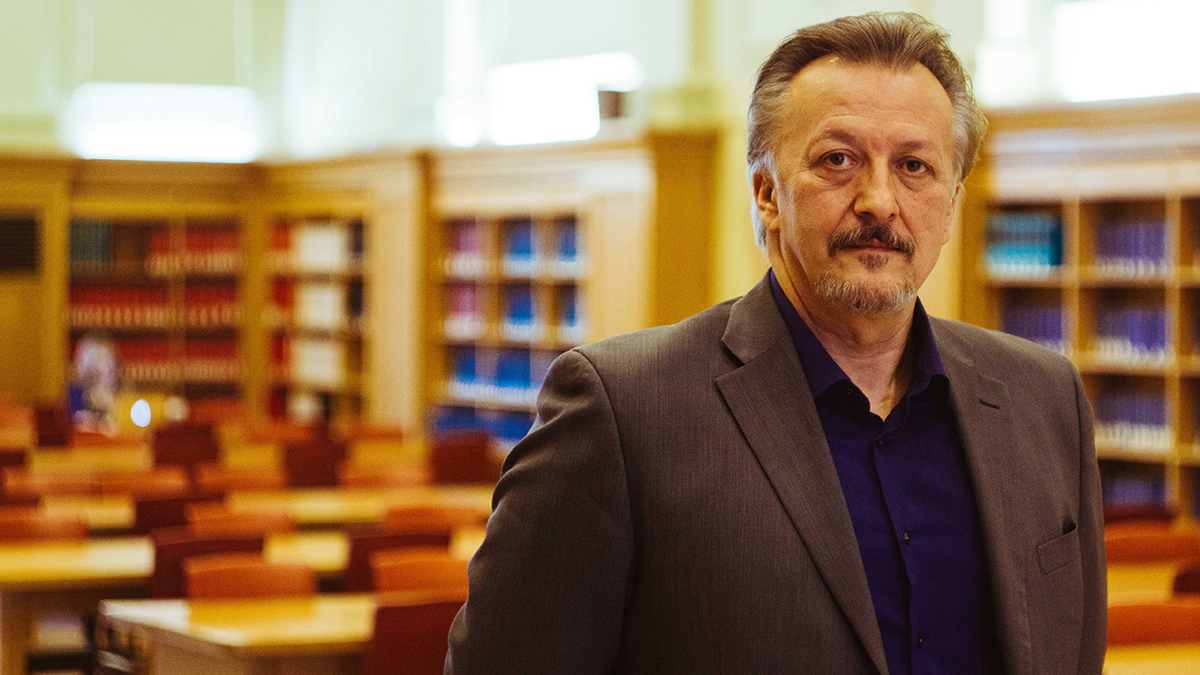Q&A: Srdja Pavlovic
 Feo P-S
Feo P-SSrdja Pavlovic is a sessional instructor with the Department of History and Classics at the University of Alberta. From the former Yugolsavia, Pavlovic offers a distinctive perspective in the classes he teaches. This semester he teaches History 210 (Europe in the 19th and 20th centuries) and History 114 (The History of the World in the Last 10 Years).
What is it like being from the former Yugoslavia — a country that has disappeared from the political map of Europe since the 1990s?
It’s a strange feeling. I feel nostalgic about a place that I cannot reach physically. I cannot visit “the old country.” That makes me a non-traditional immigrant, I guess. Mind you, my nostalgia is similar to that of other immigrants. I too struggle to preserve memories of the past. I was formed in a very particular social, political, economic, and cultural environment that used to be called Yugoslavia. I do adjust and change, of course, but places I live in, including Edmonton, I select according to the utilitarian meter.
You worked as a journalist during the Yugoslav wars. What was the scariest moment for you?
I lived and worked in Montenegro where no fighting took place, so my experience pales in comparison to that of people of Croatia and Bosnia. I wrote for Monitor, the only anti-war paper in Montenegro at the time. Together with other colleagues, I became a target of verbal and physical assaults, and poorly executed, luckily, drive-by shootings. In the atmosphere of war and violence one becomes numb to all that. My scariest moment came when I realized that my writing against war changes nothing and it is an effort in vain. A sense of total defeat scared me. That’s why I left.
Re-visiting the countries that were part of the former Yugoslavia (Bosnia, Slovenia, Croatia, Macedonia, Croatia, Serbia, Montenegro), what do you find the strangest?
These countries changed, for sure. In most cases, the infrastructure is better than it was 20 years ago. The capital of Montenegro is still a fairly small place of some 170,000 people. I was there last summer, and I had seen entire city blocks that didn’t exist when I was growing up. I guess that’s progress. There is also significant demographic change because of war and displacement as well as refugee resettlement. In Belgrade, Serbia, where I completed my undergraduate studies, I would take long early morning walks downtown. The first morning, I caught myself looking for places that I remember from my student days. I was looking for the familiar to feed the nostalgia of memory I mentioned earlier.




